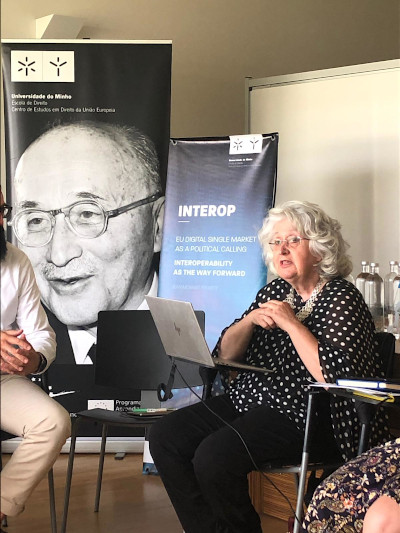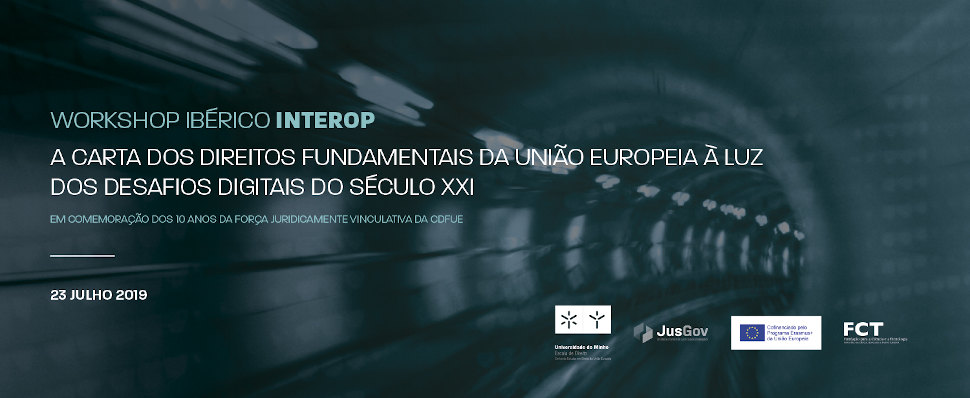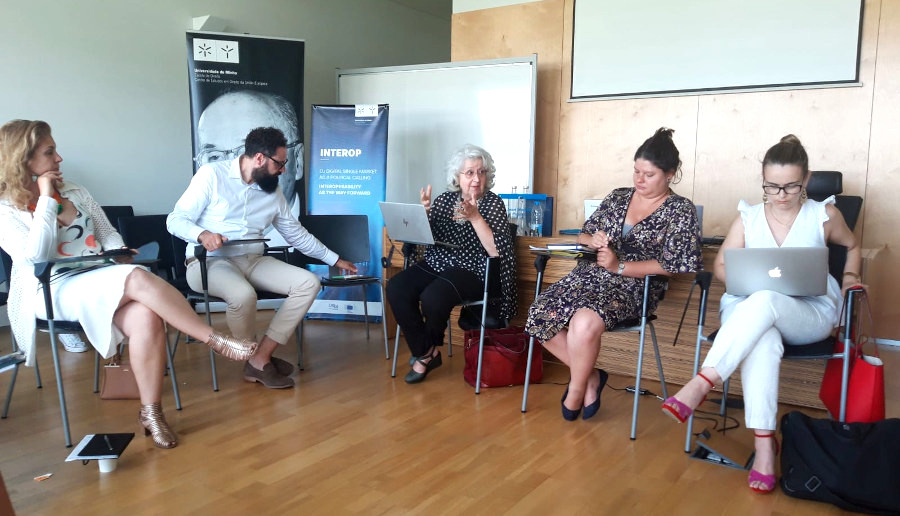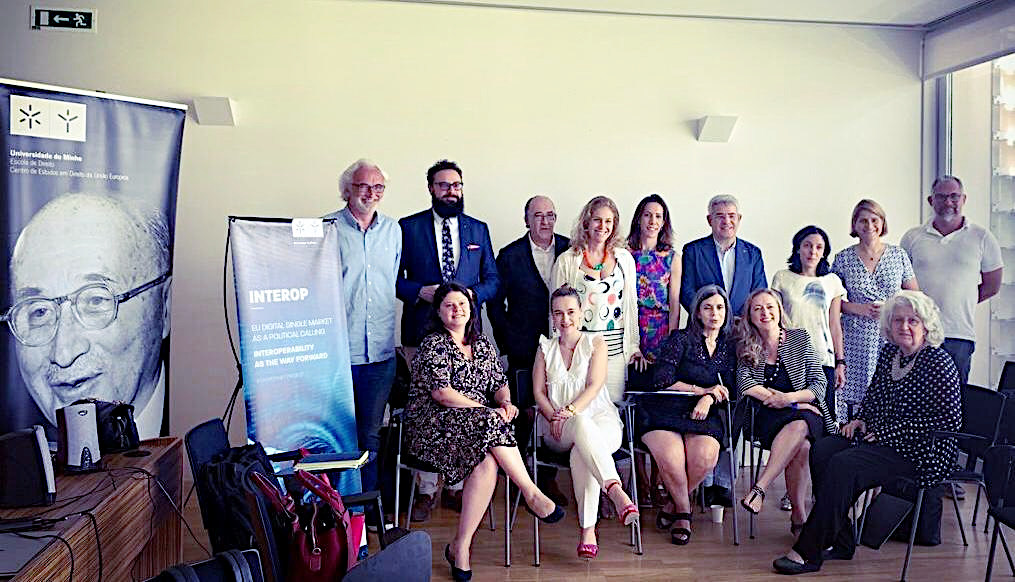Teresa Freixes participates in an international debate on the digital challenges of Law
 Teresa Freixes, professor of Constitutional Law at the Autonomous University of Barcelona, full academician and general secretary of the Royal European Academy of Doctors-Barcelona 1914 (RAED), participated on July 23 at the University of Minho in Braga ( Portugal) in the Iberian Workshop “A Carta dos Direitos Fundamentais da Uniao Europeia a luz dos desafios digitais do seculo XXI” (The Charter of Fundamental Rights of the European Union in light of the digital challenges of the 21st century). The European JusGov program of the Research Center for Justice of this university and the Erasmus Program sponsored the event, led by Alessandra Silveira, director of the Center for Law Studies of the European Union of the University of Minho.
Teresa Freixes, professor of Constitutional Law at the Autonomous University of Barcelona, full academician and general secretary of the Royal European Academy of Doctors-Barcelona 1914 (RAED), participated on July 23 at the University of Minho in Braga ( Portugal) in the Iberian Workshop “A Carta dos Direitos Fundamentais da Uniao Europeia a luz dos desafios digitais do seculo XXI” (The Charter of Fundamental Rights of the European Union in light of the digital challenges of the 21st century). The European JusGov program of the Research Center for Justice of this university and the Erasmus Program sponsored the event, led by Alessandra Silveira, director of the Center for Law Studies of the European Union of the University of Minho.
In the colloquium, topics of the utmost relevance were addressed, as the right to oblivion to transparency, data as elements of information to privacy, digital democracy, the concept of public interest and respect for free competition… Professors from various Spanish universities and those from the organizing center put on the table the main problems facing the global digital era, with all its advantages and all its disadvantages.
Silveira focused on the so-called right to be forgotten when personal data is obtained through search engines such as Google. Javier Sanz, from the University of La Coruña, warned that the Spanish University Law provides that students’ grades are public, even if they are private data. Pedro Froufe, professor of the University of Minho, who was also responsible for data in his university, focused on information on public labor competitions, accepting that in certain cases the information could be given, although in others it should be avoided. On this same topic, Joana Abreu, from the same university, explained the requirements to publish the academic notes against the claims of students who claim that only each person can have access to their grades.
Tamara Álvarez, from the University of Vigo, addressed the problem of the appropriate use of language. While Ana Carmona, from the University of Seville, the use and access to data. Sophie Pérez, from the University of Minho, intervened from Luxembourg by videoconference to focus on what she calls digital humanism. Pilar Canedo, from the University of Deusto, which also belongs to the Spanish National Competition Commission, referred to the parity clauses in companies and the use of computer platforms as a basis for their turnover. Julia Suderow, also from the University of Deusto, raised the problems arising from Big Data. Felipe de Basa, from the Rey Juan Carlos University, claimed a specialized authority that can really guarantee the disappearance of network data.

Dr Teresa Freixes
Naiara Arriola, from the University of Deusto, addressed the issues of transparency and digital democracy. And the magistrate of the Constitutional Court of Portugal and also professor at the University of Minho Mariana Canotilho raised the problem of the regulation of the Charter of Fundamental Rights of the EU to frame the powers derived from representative democracy in the global order. Fernando Álvarez, from the University of Seville, presented the debate about the loyalty required of institutions and people who must control respect for fundamental rights.
Finally, Teresa Freixes, raised the problems that occur when, from a certain fact, distorted news can be generated in a media outlet. She also addressed the conflict that appears when data protection is dejudicialized, entrusting to allegedly independent agencies control over data and information, because the guarantees that citizens have when they are judges and courts who intervene in the conflict disappear with administrative bodies that don’t operate based on the principle of constitutional loyalty but are subject to political interference.







